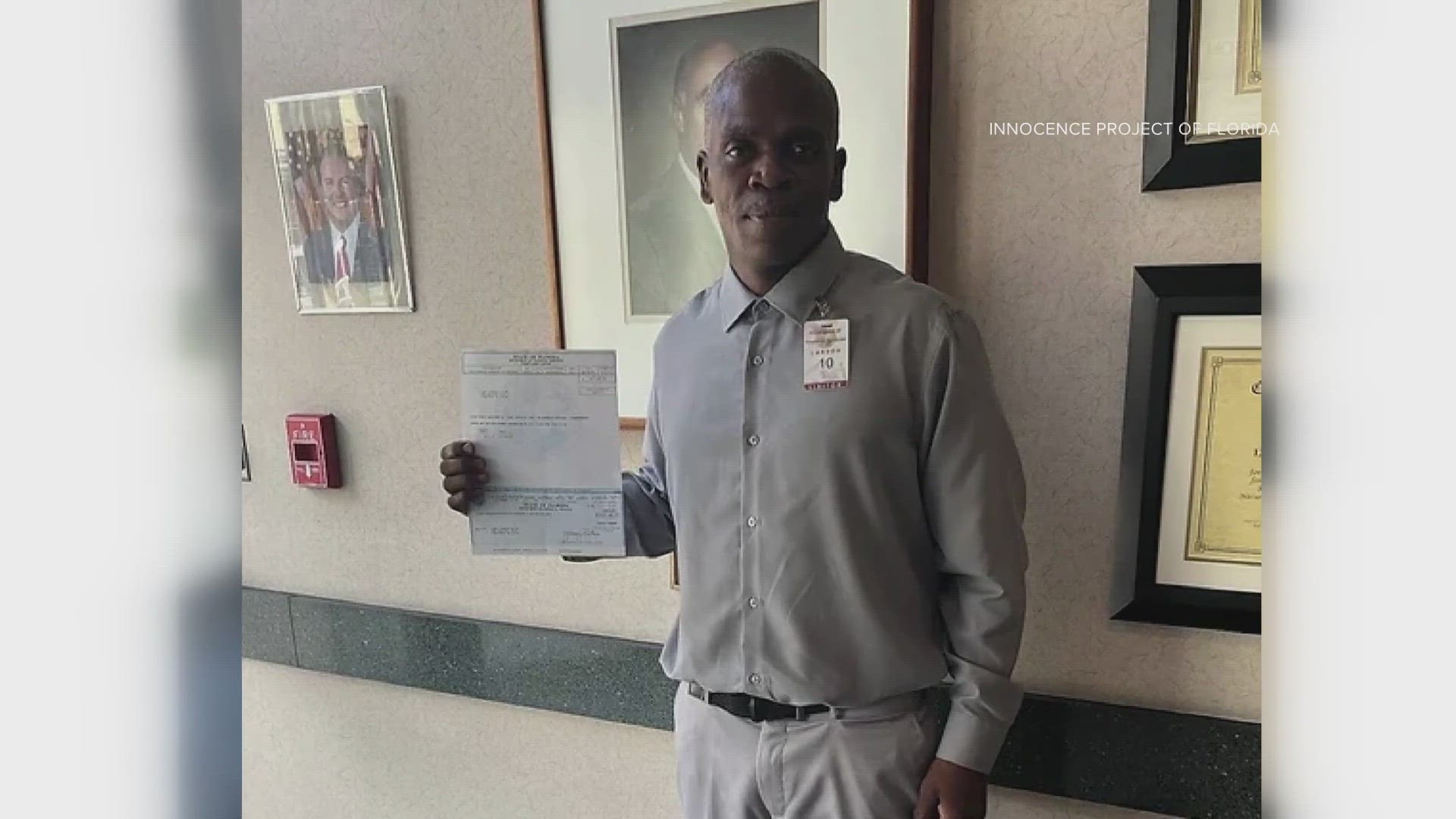CAMDEN COUNTY, Ga. — The Camden County NAACP is calling on the Sheriff’s Office to release body camera footage from Monday’s deadly deputy-involved shooting on Interstate 95.
Leonard Cure, 53, served 16 years behind bars in Florida for a wrongful conviction, before he was exonerated and released in December 2020.
Executive Director of the Innocence Project of Florida Seth Miller said Cure was returning home after visiting his mother in Atlanta, when he was killed during a traffic stop. Miller said Cure’s family members are gutted by his death.
Camden County Public Information Officer Larry Bruce said the deputy involved is on administrative leave. He said Cure was pulled over for driving over 90 mph in a 70 mph zone.
The Camden County Sheriff's Office declined to comment on the shooting. Bruce told us the agency couldn’t comment on an active investigation, but directed First Coast News to request body camera footage and the personnel file of the deputy involved from the GBI.
First Coast News requested the materials from the GBI but were told they are “not releasing any evidence at this point” because “it’s an open and active investigation.”
Camden County NAACP President Timothy Bessent Sr. said the Sheriff’s office needs to be transparent about why the shooting happened.
"We need to know what led to the death of Mr. Leonard. The community needs to know that," Bessent said.
He said the people of Camden County deserve it.
"Let the community see the video. There needs to be a trust restored within our community right now," Bessent said. "Black and brown people in our community. They have very little trust in our sheriff's department."
The Georgia Bureau of Investigation said Cure assaulted the deputy while he was trying to arrest him. The agency said the officer tased Cure twice before shooting him.
"It's just an utter tragedy and he was someone who was a good person, close to his family, good to everyone around him and to have him gone in this way is just devastating," Miller said.
Cure recently received compensation for his wrongful incarceration and used the money to buy his first home, according to Miller.
He added Cure could have been triggered by the incident and the thought of going back to jail.
"Most people who are wrongfully convicted and incarcerated long-term for crimes they didn't commit bring with them trauma that can trigger them at any moment when faced with the prospect of being sent back for something they didn't do," Miller said.

